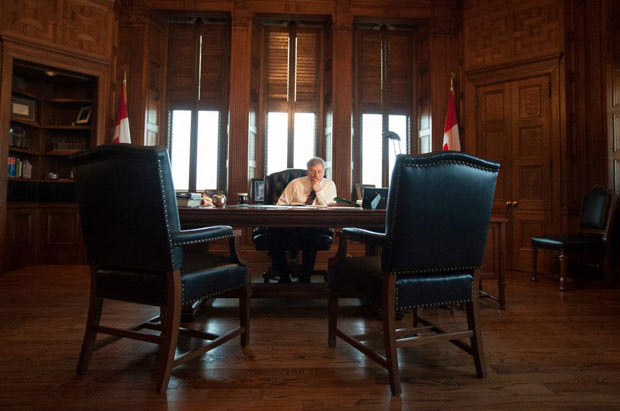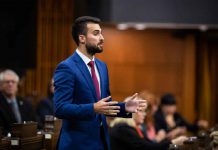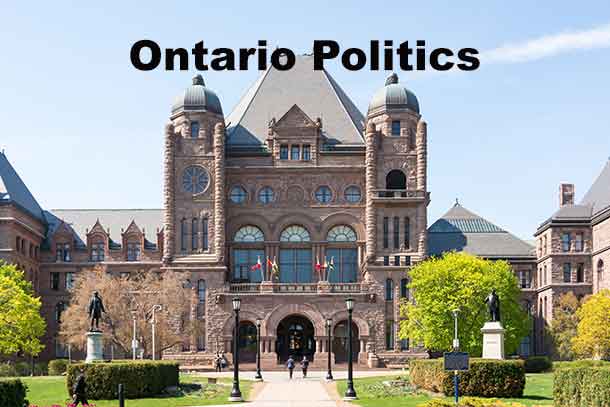
THUNDER BAY – Political – The House of Commons resumed sitting on Monday after the Christmas break. At the top of Question Period in the Commons was an issue that has focused a lot of media and public attention over the break – Aboriginal Affairs.
For the Prime Minister Monday was Twitter Day, the PM tweeted images of his day along with a steady stream of Tweets to share with Canadians.
The Government has not budged on any of its initiatives that have raised concerns of Aboriginal and First Nations peoples over the past several weeks.
Perhaps putting out a challenge, the Prime Minister stated, “I notice aboriginal people have never been as strongly represented in the Government of Canada as they are in this caucus today. We intend to move forward”. In Northern Ontario, Kenora Rainy River MP Greg Rickford won re-election with 47% support. Likely if all of the eligible First Nation voters in the riding had voted, Rickford’s voice would not be one of the Prime Minister’s MPs.
The issue of consultation and respect were raised by Thomas Mulcair the leader of the Oppostion, as well as by Bob Rae the Liberal leader. The Prime Minister said, “We will continue to work with those positive partners who seek to make progress”. The definition of what is positive, or what is progress were not addressed by the Prime Minister.
Here is the full exchange from Question Period in the House of Commons:
House of Commons Question Period – Aboriginal Affairs
Hon. Thomas Mulcair (Leader of the Opposition, NDP): Mr. Speaker, current unemployment rates in first nations communities are as high as 80%, and half of the homes in those communities are in a dismal state. Schools and students in those communities receive 30% less funding than those elsewhere.
Last year, during meetings between the Crown and first nations, the Prime Minister promised to renew the nation-to-nation relationship with first peoples. He promised meaningful consultations; he never listened. He promised to attack these problems; instead, he attacked the chiefs.
Will the Prime Minister finally agree to take meaningful action on this matter?
Right Hon. Stephen Harper (Prime Minister, CPC): Mr. Speaker, this government has put forward several unprecedented, meaningful measures for Canada’s aboriginals. We have built new homes, created new schools and constructed new potable water systems. We have also resolved a number of land claims. Of course, there is still a lot to be done. Nevertheless, we will pursue our agenda in co-operation with positive partners.
Hon. Thomas Mulcair (Leader of the Opposition, NDP): Mr. Speaker, the Prime Minister promised meaningful consultation. Gutting environmental protection for thousands of lakes and rivers on aboriginal territory is not meaningful consultation. Cancelling thousands of environmental assessments over the objections of first nations is not meaningful consultation.
The Prime Minister promised respect on a nation-to-nation basis. Will the finally agree to Prime Minister consult, and to listen, on the environmental protection of first nations’ lands and waters?
Right Hon. Stephen Harper (Prime Minister, CPC): Mr. Speaker, protection of aboriginal treaty rights and consultations in these various processes are in fact enshrined in the very laws that this government has passed through the Parliament of Canada. On top of that, we have made unprecedented investments into things that will make a concrete difference in the lives of people, in skills training, in housing on reserves, in potable water, in schools, in treaty rights, in the protection of the rights of women and in the resolution of many land claims as well.
We will continue to work with those positive partners who seek to make progress.
Mr. Romeo Saganash (Abitibi—Baie-James—Nunavik—Eeyou, NDP): Mr. Speaker, if the Conservatives respected the treaties or the nation-to-nation negotiating principle and consulted with aboriginal people before introducing bills that have a direct impact on their rights, there would be no such thing as Idle No More.
The political inaction that has lasted for decades under both the Liberals and the Conservatives is no longer an option.
Today, I introduced a bill to ensure that Canadian laws are consistent with the UN Declaration on the Rights of Indigenous Peoples.
When will this become a reality?
Hon. John Duncan (Minister of Aboriginal Affairs and Northern Development, CPC): Mr. Speaker, we are working in partnership with first nations on the issues addressed in the United Nations Declaration on the Rights of Indigenous Peoples. We continue to work with willing partners on shared priorities, including education, economic development and access to safe drinking water.
Our government continues to take action because we believe that first nations deserve the same opportunities as all other Canadians.
Mr. Romeo Saganash (Abitibi—Baie-James—Nunavik—Eeyou, NDP): Mr. Speaker, why did the Conservatives endorse this declaration in 2010 and then ignore it? Conservative inaction is being criticized by first nations and other Canadians from coast to coast to coast today.
The NDP is listening. The NDP values consultation. My bill ensures that our laws are consistent with the UN Declaration on the Rights of Indigenous Peoples. Will the Prime Minister or the minister agree to support this important initiative?
Hon. John Duncan (Minister of Aboriginal Affairs and Northern Development, CPC): Mr. Speaker, the member opposite knows we have been working in partnership with first nations for seven consecutive years. Since 2006 we have delivered on our promise to improve accountability and transparency. We have settled over 80 land claims. We have invested in over 700 projects that are linking aboriginals in Canada with jobs, job training, counselling and mentorship programs.
We are proud of our record. We will continue to support first nations so they can achieve the prosperity they deserve.
Hon. Bob Rae (Toronto Centre, Lib.): Mr. Speaker, in November last year, the national chief wrote a letter to the Prime Minister expressing profound concern that in fact progress was not being made, that in fact aboriginal people were not being appropriately consulted, and that in fact there was no basis upon which he could say, to the people that he represented, that in fact substantial progress was being made.
Can the Prime Minister tell us what further action he is going to take? What change is he going to introduce that will end the sense that the aboriginal population of Canada is being marginalized by the policies of the Government of Canada?
Right Hon. Stephen Harper (Prime Minister, CPC): Mr. Speaker, in fact the government has put out a report card on the various actions it has undertaken recently to deal with a series of commitments. It is important that we make progress on these issues. As I have said many times before, aboriginal people, based on the areas in which they live in the country, will have unprecedented opportunity in the generation to come.
I notice aboriginal people have never been as strongly represented in the Government of Canada as they are in this caucus today. We intend to move forward.
Hon. Bob Rae (Toronto Centre, Lib.): Mr. Speaker, since this government has signed the UN Declaration on the Rights of Indigenous Peoples, can the Prime Minister tell us unequivocally that the government accepts its responsibilities?
Does the government acknowledge that Canada has legal obligations as a result of signing the UN Declaration?
Right Hon. Stephen Harper (Prime Minister, CPC): Mr. Speaker, I have been clear about this on many occasions: we always meet our legal obligations under the Constitution of Canada and our treaties.
We are taking meaningful action to improve the lives of ordinary aboriginal people in communities throughout the country. We are pursuing these initiatives with positive partners who also want substantial progress to be made.






